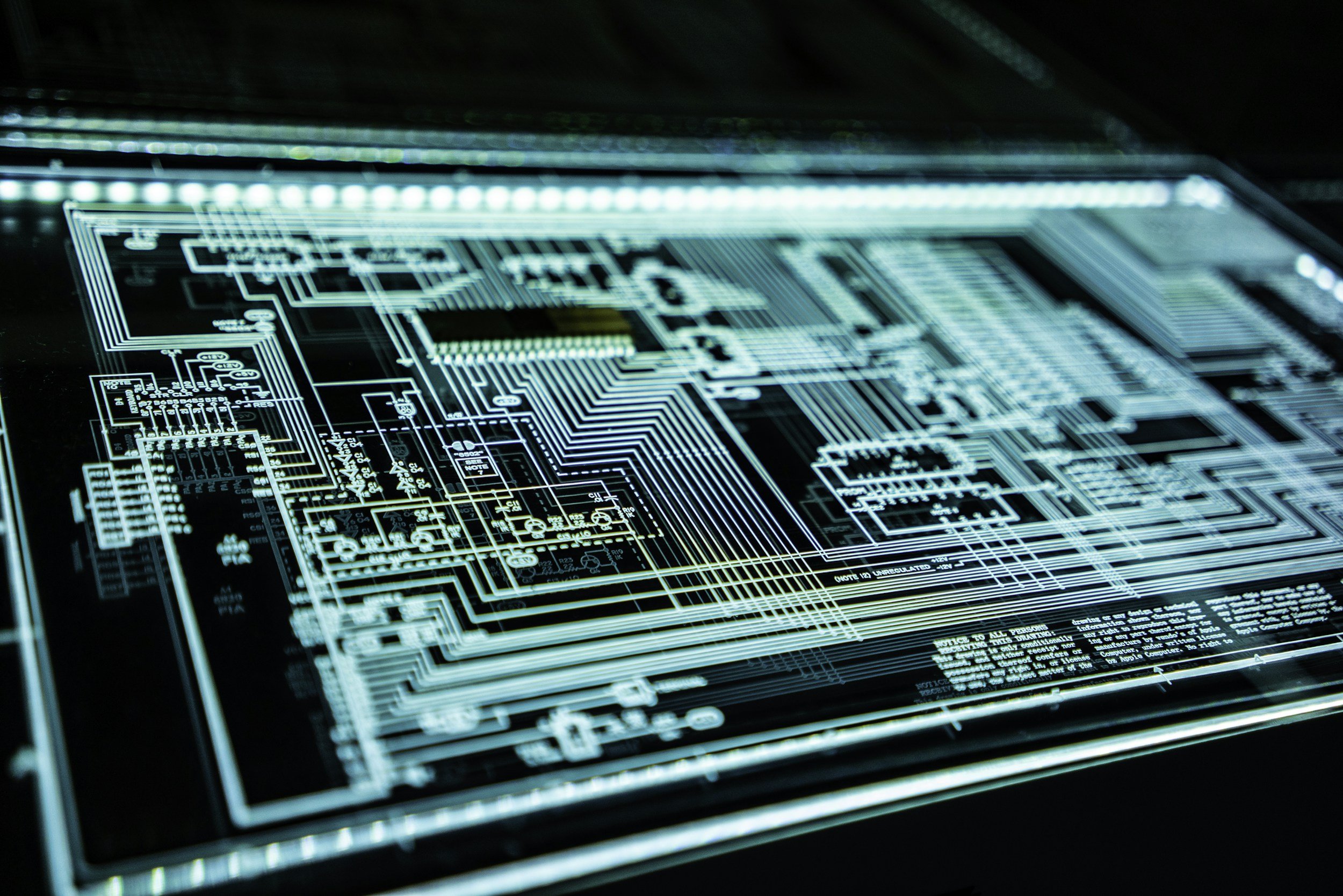New Study Highlights Untapped Potential of AI Researchers in Scientific Discovery
A recent preprint by researchers from Westlake University analyzes AI’s increasing presence in scientific research. While AI tools are widely adopted, the study finds that AI researchers seldom lead discoveries and suggests strategies to integrate them more directly into the scientific process.
Intelmatix Launches AI Academy to Boost Enterprise AI Skills After LEAP 2025 Debut
Intelmatix has officially launched its AI Academy following its presentation at LEAP 2025. The initiative aims to equip non-technical professionals with practical knowledge to implement AI across industries, addressing the global skills gap and supporting digital transformation efforts.
NVIDIA Introduces Cosmos World Foundation Models for Physical AI Development
NVIDIA launched its Cosmos World Foundation Models at GTC 2025, providing developers with customizable AI tools for creating photorealistic virtual environments. Early adopters, including Agility Robotics and Uber, are leveraging Cosmos for advanced robotics and autonomous vehicle training.
AI Weighs In: Kai Tak Sports Park Snooker Controversy and “Raising a Child” Excuse
Kai Tak Sports Park’s debut was marred by a mid-match spectator ejection, triggering public backlash. A government official’s “raising a child” analogy drew sharp criticism. AI weighs in: is it sound governance—or just a way to deflect blame for mismanagement?
Why Chatbots Fail at Character Counting: A Detailed Test
Chatbots excel in conversation but falter at counting characters, as Our test of models like ChatGPT 4o, Grok 3, and Gemini 2.0 Flash shows. With results ranging from 114 to 153 for a 135-character sentence, the report uncovers design flaws, from tokenization traps to hallucination, highlighting the complex trade-offs in AI development.
Google Gemini AI: Search History and Calendar Data in Focus?
Google’s experimental Gemini Personalization Model aims to enhance AI by tapping into users’ search histories and calendars, offering tailored responses and scheduling aid. Unveiled in beta, it promises utility but ignites privacy debates, with safeguards under scrutiny as testing expands.
Philosophical Study Probes AI Intelligence in Language Models Like OpenAI ChatGPT-4
A new philosophical paper dives into the capabilities of large language models like OpenAI ChatGPT-4, questioning whether their high performance on tests like the GRE and LSAT reflects genuine intelligence or advanced mimicry. Authors Raphaël Millière and Cameron Buckner explore how AI challenges traditional views on cognition, setting the stage for a deeper look at machine learning’s inner workings.
Examining Grok 3’s “DeepSearch” and “Think” Features
xAI’s Grok 3, launched in February 2025, introduces "DeepSearch" for real-time data and "Think" for reasoning. This report examines their differences, user options, and AI implications, offering insights into when each feature shines—or falls short. From speed to transparency, we analyze what sets Grok 3 apart in the evolving AI landscape.
s1-32B AI Breakthrough: Simple Reasoning Rivals OpenAI o1
In a leap for AI, researchers unveil s1-32B, a model that enhances reasoning with a mere 1,000 curated questions. Outshining OpenAI’s o1-preview on math contests, it scores 59.6% on tough science problems using a simple "budget forcing" technique. Fully open-source, it challenges industry norms with efficiency and transparency.
Fei-Fei Li’s New AI Model Redefines Distillation: Challenging DeepSeek at Just US$14?
China’s local governments are rapidly adopting the DeepSeek AI model, transforming operations with faster document processing and audits. In Shenzhen’s Futian district, 70 AI units slash task times, but public reactions range from praise for efficiency to fears of job cuts among the nation’s 8 million civil servants.
Elon Musk's Grok 3: Powered by 100,000 H100 GPUs for Unmatched AI Performance!
Elon Musk’s xAI is set to release Grok 3, a powerful AI model with advanced reasoning and adaptability. With enhanced computational power and refined training techniques, Grok 3 aims to challenge industry leaders. Will it redefine AI capabilities, or does it come with hidden trade-offs?
AI Bias? DeepSeek’s Differing Responses in Different Languages
A recent investigation reveals that DeepSeek AI provides different answers based on language, igniting debate over AI governance, bias, and content moderation. This case highlights the challenges of balancing localization with factual accuracy in AI-generated content.
What You Need to Know About DeepSeek AI’s License and Its Restrictions
DeepSeek’s new AI license offers open-source flexibility but introduces ethical and legal restrictions, including remote enforcement and jurisdiction in China. While enabling commercial AI applications, businesses must navigate compliance risks and data privacy concerns.
Did DeepSeek Use 50,000 NVIDIA GPUs for R1? AI Model Sparks Debate on Efficiency & Transparency
DeepSeek’s R1 AI model has sparked debate over its development speed and resource efficiency. With speculation surrounding its use of 50,000 NVIDIA GPUs, experts are questioning the model’s transparency and scalability. How does it compare to industry giants like OpenAI, Meta, and Tesla? This report explores the facts, expert opinions, and the evolving landscape of AI development.
Can a US$5.6 Million Budget Build a ChatGPT-Level AI? ChatGPT o3-mini-high Says No!
With rising interest in AI models like Deekseek, we explore whether a US$5.6M budget can develop a ChatGPT-scale AI. From compute costs to alternative approaches, discover the reality of AI development in this in-depth analysis.
DeepSeek vs. ChatGPT: AI Knowledge Distillation Sparks Efficiency Breakthrough & Ethical Debate
DeepSeek’s latest AI model, R1, utilizes knowledge distillation to rival ChatGPT while reducing computational costs. However, OpenAI has raised concerns about potential IP misuse. This report explores the advancements, applications, and ethical implications of knowledge distillation in AI development.
AI Achieves Self-Replication: A Milestone with Profound Implications
AI has crossed a significant threshold as researchers prove its ability to self-replicate. While this advancement highlights AI's immense potential, it also brings ethical, safety, and regulatory concerns to the forefront. Explore the groundbreaking study, the history of AI development, and global efforts to address the risks of frontier AI systems.
UTAR PhD Student Wins Cisco AI Hackathon with Anti-Procrastination AI Platform
Japan's stringent 100-gram drone law prioritizes safety and accountability, pushing manufacturers to innovate. With AI-driven advancements, ultra-light drones now boast cutting-edge features like autonomous navigation, energy optimization, and precision sensors, all while adhering to regulatory limits. Explore how AI is reshaping the landscape of lightweight drones.
AI Explores Parenting: Should Parents Need Licenses or Centralized Childrearing Be the Future?
Should parenting require a license? Could centralized childrearing be the solution to family challenges? In this thought-provoking report, ChatGPT O1 explores the ethical, emotional, and societal aspects of modern parenting, offering balanced insights into one of the most crucial roles in our society.
Why Do We Pray if Everything is Planned by God? Insights from OpenAI o1
Why pray if God has already planned everything? This question resonates with skeptics and believers alike. We asked OpenAI’s o1 to explore how prayer fosters a relationship with God, transforms lives, and aligns us with divine purposes. Discover its thought-provoking insights in this detailed report.


























